10 Things to Love About CMU’s Dietrich College
By Elizabeth Jeffries
It has been said that Carnegie Mellon University’s Dietrich College of Humanities and Social Sciences is not an ordinary liberal arts school.
Dietrich College undergraduates can choose from more than 60 majors – everything from Chinese Studies to Statistics. At the graduate level, students research and collaborate with others throughout the college and CMU to learn how to solve problems outside of the confines of one discipline.
Both undergraduate and graduate students work closely with Dietrich College’s world-class faculty who train them to be leaders and critical thinkers and to use their education as a launching pad for successful and varied careers.
Within the Dietrich College, real world problems are analyzed, challenged and solved, contributions are made in traditional ways and global differences are made. Dietrich College students, faculty and alumni do a lot. Here are 10 of the many things to love.
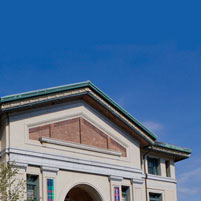 #1 The Sky Is The Limit
#1 The Sky Is The Limit
Dean Richard Scheines is proud of the Dietrich College.
Scheines believes that Dietrich College has risen to become an elite college because it has successfully combined two things that often conflict: high standards of academic rigor and the intellectual freedom to work outside of traditional disciplinary boundaries.
“We have faculty in the English Department reconstructing social networks of 17th century playwrights and documenting their influence on the emergence of international law, and faculty in the History Department working with computer scientists on using phone videos to recreate scenarios relevant to human rights issues in the 21st century. No college of humanities and social sciences does this kind of interdisciplinary work better than Dietrich,” said Scheines.
A faculty member since 1990, Scheines has seen many exciting projects develop and grow throughout the college. From building a needle exchange program in Pittsburgh to helping institutions in Africa develop IT to creating interventions to reduce teen pregnancy and many more, Scheines says that a point of pride is how so many faculty and students take on real world problems and make a difference in solving them.
One of Scheines’ most memorable experiences since becoming dean happened in the fall of 2014, when former Supreme Court Justice David Souter visited CMU to speak about the importance of the humanities and social sciences in the world today – a much-discussed topic. While on campus, Justice Soulter met with Dietrich College students and faculty to discuss their work.
“A week later I received a hand-written letter from Justice Souter in which he wrote, ‘There was electricity in the room, and some of the abundant energy ended up in me. Carnegie Mellon didn’t need me to beat the drum for the humanities, and I went home filled with admiration,’” shared Scheines.
It is clear that for Dietrich College, the sky is the limit.
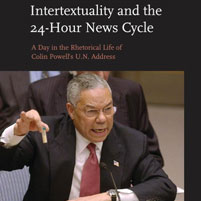 #2 Connecting Political Rhetoric To Reality
#2 Connecting Political Rhetoric To Reality
Common associations for English fields include writing and literature. While Dietrich College’s Department of English excels in those areas, the Rhetoric Program is equally notable.
John Oddo, assistant professor of English, believes rhetoric matters because everyone uses and encounters it and that political rhetoric is particularly important, especially around election season. Oddo’s research focuses on political arguments for war. Through his work, he has found that many arguments do not stand up to rhetorical scrutiny because many political leaders will use rhetorical strategies that appeal to the emotions of their audiences. By using this tactic, politicians are often able to get away with not supplying relevant evidence for their cases.
“If we understand rhetoric, we can examine political arguments and better determine whether those arguments deserve public support,” said Oddo. “We can more easily see when evidence for some policy initiative is insufficient, and we can demand more proof.”
For example, Oddo investigated the “rhetorical life” of Colin Powell’s 2003 United Nations Security Council speech on Iraq harboring weapons of mass destruction in his book, “Intertextuality and the 24-Hour News Cycle.” Focusing on one day of pre- and post-speech news coverage, Oddo revealed the role that journalists played in shaping American attitudes about Powell, his presentation and the desirability of war in Iraq.
“In general, the press made Powell’s speech more persuasive,” Oddo said. “The media—for whatever reason—reported on what he said and made it seem like he said it with much more certainty. As consumers of mainstream news, we have to realize that there is no thing as an objective report of someone’s talk.”
Currently, Oddo and Ph.D. student Calvin Pollak are collaborating to examine a large body of news articles about U.S. drone strikes in Yemen, Pakistan and Somalia. Their key question concerns the sources that journalists use in these stories. According to the Society of Professional Journalists' “Code of Ethics,” journalists have a number of responsibilities when it comes to selecting and presenting sources. Their goal is to see what sources are actually used in the press, examining the language, or rhetoric, used to describe sources.
Pollak feels that topics of political rhetoric are especially important for consumers of culture.
“Wars are raging in the Middle East and Africa; income inequality is at terrifying levels. Climate change is bearing down around us all over the world. In all of these issues, discourse is deeply implicated. I can’t imagine studying anything else,” he said.
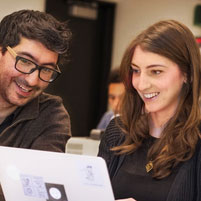 #3 No Education School? No Problem.
#3 No Education School? No Problem.
CMU does not have a School of Education, but state-of-the-art education research is still happening here.
For example, the Department of Psychology has a long history of education work. Psychology faculty have created some of the world’s first cognitive tutors and applied theoretical understanding of mathematical thinking to improve children’s learning. And hundreds of undergraduate and graduate students have been trained on the relationship between basic cognitive processes and their implications in math and science education.
Psychology faculty are also big players in the Simon Initiative, a university-wide effort that aims to measurably improve student learning outcomes by harnessing a learning engineering ecosystem that has developed over several decades at CMU.
One resource for CMU’s next generation of education researchers is the Program for Interdisciplinary Education Research (PIER), a Ph.D. certificate program for students in a variety of different programs, including psychology, computer science, human-computer interaction (HCI), philosophy and statistics, as well as within the Heinz College and Tepper School.
PIER’s history is solid. With consistent funding from the Department of Education Institute of Education Sciences for the past 11 years, the program has trained 28 doctoral students who are now working in diverse areas of education, from top universities to educational startups.
According to David Klahr, PIER director and the Walter van Dyke Bingham Professor of Cognitive Development and Education Sciences in the Psychology Department, CMU excels in the area of education research because of the ways that Dietrich College and different departments across campus work together.
“Advances in education research will be based on the disciplines represented in the range of CMU departments participating in PIER, such as cognition, cognitive development, complex systems, human-computer interaction, advanced statistical methods and policy analysis. It is all highly interdisciplinary,” Klahr said.
For students interested in early education, The Children’s School, founded in 1968, is a great opportunity to conduct research and work directly with children. The school is a laboratory that focuses on developmentally appropriate learning for children between the ages of three and five, rich research and practice experiences for students and constructive collaboration with researchers across CMU’s campus.
“Psychology researchers are investigating basic learning processes, such as how children allocate their attention in learning environments and the resulting impact on comprehension, or how children detect the statistical features of words or images in order to learn language and categories,” said Sharon Carver, director of the Children’s School. “Scholars from the Robotics Institute have collaborated with our educators to develop and disseminate iPad technology for young children to send photographs with audio annotation to their family members’ email and cell phones. Investigators from the Human-Computer Interaction Institute, School of Design and other fields visit the school to observe children’s interactions and activities, and to do user testing, in order to improve their designs.”
Carver added, “This breadth of learning sciences research, together with the laboratory school’s original early childhood curriculum, parent support and community outreach, creates an exciting learning environment for all ages.”
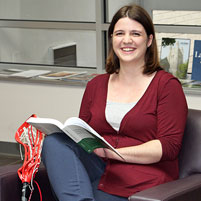 #4 Students Who Do it All
#4 Students Who Do it All
CMU students are known for excelling in and out of the classroom.
In the Dietrich College, junior Sarah Duncan exemplifies this. A logic and computation major with a minor in software engineering, Duncan is also vice president and co-captain of the club lacrosse team and a resident assistant to 34 freshmen. She already has one successful internship under her belt as a data analyst at Locus Analytics, an economic think thank startup.
“I was essentially a software engineer for the summer and did data mining and retrieval, taking raw data and making it into something useful for the company,” Duncan said. “Not only was my internship an excellent networking opportunity, but it also confirmed that what I’m studying is what I should be studying. My major, coupled with my software engineering minor, is a perfect fit for me.”
Housed in the Philosophy Department, the logic and computation major involves learning the logical foundations of computational methodologies that are used in a wide variety of fields, including mathematics, logic, statistics, computer science, decision sciences and economics. Students often use this interdisciplinary education as the basis for careers in software engineering, data analysis and teaching.
“I absolutely love logic and computation because it’s all about problem solving and logic puzzles,” Duncan said. “I find that very fun, but it also has practical applications that most people probably don’t really think about. It’s so interesting to think that there could not be computer science without formal logic.”
Duncan's major complements her minor in software engineering, and she believes it brings a unique perspective to her programming work.
“Advising Sarah as a logic and computation major is so enjoyable because she has infectious enthusiasm about what the program does: brings together threads of research and analysis from diverse disciplines with the logical foundations of many of the methods they employ," said Joel Smith, distinguished career teaching professor of philosophy. “Her enthusiasm is fueled by the recognition that the major combines diverse, practical computational methods with the understanding of their foundations, and that further empowers her to accomplish her intellectual goals.”
When asked how she balances it all—a demanding course load, lacrosse and mentoring her residents, among other things—Duncan says she just tries to maintain her health and happiness.
“The part of the balance I put specific focus on is making sure that I take care of myself, while staying healthy in the process. This is something I try to encourage all my residents, and even my friends, to do because all the amazing things we take part in here at CMU are worthless if we aren’t healthy and happy enough to enjoy them,” she said.
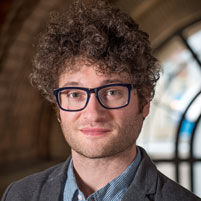 #5 Faculty: The Best of the Best
#5 Faculty: The Best of the Best
Dietrich College is home to a world-class faculty, including seven members of the American Academy of Arts and Sciences, three members of the National Academy of Science, two members of the National Academy of Medicine and one member of the National Academy of Education.
And junior faculty members are already making their mark. Case in point: Alex Imas, an up and coming star in the behavioral economics field and the Department of Social and Decision Sciences.
An assistant professor, Imas recently won two prestigious awards, the Distinguished CESifo Affiliate Award and the Hillel Einhorn New Investigator Award, for his paper, "The Realization Effect: Risk-Taking After Realized Versus Paper Losses." He was also named to Pacific Standard’s 2015 "The 30 Top Thinkers Under 30” list.
Imas came to CMU because he knew it was the best place to do research in the intersection of economics and psychology. He enjoys the collaborative environment and feeling involved in his colleagues’ work.
“From the most senior to the most junior, everyone is active and interested in other people’s work. You never know who is going to show up to your lecture; it feels like a family,” he said.
Imas is interested in how social concerns and emotions influence decision-making and preferences, including exploring the relationship between self-imposed mental accounts and risk attitudes. In "The Realization Effect," he explored how prior losses influence a person's attitude toward taking on additional risks. Determining how prior outcomes affect preferences for risk is critical for understanding how people make choices when faced with uncertainty. Previous research findings were inconsistent, even contradictory; some found that people took on more risk after a loss while others found the opposite.
His work showed that those inconsistent findings can be explained by individuals' different responses to realized versus "paper" losses, or unrealized capital losses. Following a realized loss, or where people part and transfer the amount lost to a different account, individuals are more likely to avoid risk. If the loss has not been realized, people are more likely to chase their losses and take on even greater risk. The findings have important implications for policy in regulating financial markets and casinos, as well as contract design, monitoring and choice under uncertainty.
"Imas's research brilliantly, and deceptively simply, makes sense of a lot of previous findings that, until he did his research, appeared contradictory. A lot of disparate findings suddenly fall into place," said George Loewenstein, the Herbert A. Simon University Professor of Economics and Psychology.
A fun fact: Loewenstein, also in the Social and Decision Sciences Department, was the first winner of the Hillel Einhorn New Investigator Award for his 1988 paper "Frames of Mind in Intertemporal Choice."
 #6 Shattering Foreign Language Trends
#6 Shattering Foreign Language Trends
CMU is known for innovation and going above and beyond expectations, and the Dietrich College’s Department of Modern Languages is no exception.
Despite no university-wide language requirement, in 2014, 45 percent of CMU students from across the university took a modern languages course. This is a striking contrast to the roughly eight percent of undergraduates nationally who take a foreign language class.
The department offers courses in nine language and culture areas: Arabic, Chinese, French, German, Italian, Japanese, Russian and Spanish, including courses in English on Korean culture. Majors and minors are available in Chinese Studies, French and Francophone Studies, German Studies, Hispanic Studies, Japanese Studies and Russian Studies.
Charlotte Himeles, a Hispanic Studies major, believes that the department is always encouraging students to be open to exploring new cultures and languages.
“Spanish has always piqued my interest, but the Modern Languages Department faculty's enthusiasm for the language inspired me to major in Hispanic Studies. Every Spanish professor that I have had at Carnegie Mellon has expressed a genuine interest in each of their student's progress,” said Himeles, a fifth-year senior.
Learning a language is very accessible at CMU. Since the conception of the Open Learning Initiative (OLI) nearly two decades ago, students who know the value of learning a second (or third) language have been able to do so by taking online or blended learning courses.
Students appreciate the option and some find that the blended online approach helps ensure organization and focus.
“I like taking French through OLI because it is convenient having all of the notes in one place,” said Josephine Sullivan, a senior majoring in logic and computation. “In a typical class, you may forget to write something down or lose a handout, but with OLI, I can go back and review everything.”
Students studying languages also have unconditional support from faculty and alumni. Modern Languages Department Head Susan Polansky credits the success of the department to those individuals who are committed to teaching beyond the classroom.
“The faculty’s engagement with students is extraordinary. They are in all kinds of places working on behalf of students; their dedication is incredible,” said Polansky.
Polansky also highlighted the importance of the alumni base that the department has fostered. This group helps support study abroad scholarships and other culture oriented activities for students that help enrich learning outside the classroom.
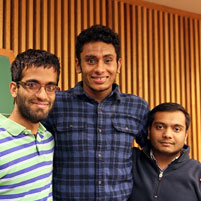 #7 A Big Deal Statistics Department
#7 A Big Deal Statistics Department
Big data affects nearly every industry and field and is only becoming more important.
According to numbers released by the American Statistical Association (ASA), statistics is the most rapidly increasing Science, Technology, Engineering and Math (STEM) discipline for undergraduate students, even outpacing computer and information technology-related fields.
And, the Dietrich College’s Department of Statistics — a global leader in applying statistics to many areas of science, technology, policy and education — is among the fastest-growing statistics departments.
“The Statistics Department — and indeed Carnegie Mellon as a whole — exhibits an ethos that values and benefits from true interdisciplinary work,” said Christopher R. Genovese, head of the Statistics Department. “Our undergraduate curriculum builds on this by offering authentic engagement with interdisciplinary problems and extensive experience with the analysis of real data. (We have no “textbook” datasets after the introductory courses.) I think this is a key to both the recent growth and the continuing demand for our courses.
“Throughout the program, we emphasize modern statistical and computational methods, strong communication skills and effective statistical thinking. Carnegie Mellon provides an environment with low barriers to interaction among different fields, for students and faculty, and with the flexibility that allows students to tailor their program to meet their goals and interests,” Genovese said.
Genovese, Rebecca Nugent and Howard Seltman, who co-direct the department’s undergraduate program, were featured in ASA’s magazine to share how they keep pace with the increased interest. Some highlights:
- The number of CMU statistics undergraduate majors has roughly doubled since 2010 and has grown twenty-fold since 2005.
- The department builds on and highlights connections between statistics and other fields by offering joint majors, such as with economics and machine learning; new tracks within majors in neuroscience and statistical theory; and a statistics-operations research track in the Mathematical Sciences Department.
- In recent years, roughly 10–20 percent of primary statistics majors have gone on to graduate or professional school. Among the rest, the most common sectors in which CMU statistics students get jobs are, in recent years, finance and banking, consulting and analytics, and management and marketing. It is becoming more common for CMU graduates to get jobs labeled “data scientist.” A reasonable number also work in industrial research, pharmaceuticals, software and teaching.
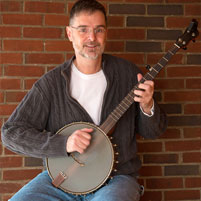 #8 Roots of Rock & Roll in Baker Hall
#8 Roots of Rock & Roll in Baker Hall
When a professor plays his banjo in class, students tend to pay extra attention.
And that’s exactly what happens in “Roots of Rock & Roll,” a popular course offered by the Dietrich College’s Department of History that examines open source, collaborative innovation and the impact of social and technological change on American music.
It would be easy to pass this course off as a typical music history class, but students have found that is not the case. Associate Professor of History Scott Sandage brings unique teaching techniques to the course, making it an interactive experience for students. Students have the opportunity to learn about the history of rock and roll by making wax cylinder recordings and listening to actual records from the turn of the century. They even learn popular dance moves from the periods they are studying, such as the classic Mashed Potato.
“Professor Sandage played his banjo for us in class, giving us a physical and audible representation of the history we had been learning. Not only was the class never boring, but it went further than I have ever seen any class go in the breadth of its techniques,” said William Dively, a Dietrich College sophomore.
Throughout the semester, students learn about early “remix” music, such as slave songs, Anglo-Appalachian ballads, ragtime and Depression-era blues and country. They also study Bessie Smith, Woody Guthrie, Lead Belly, Hank Williams and other early American musicians before finishing with revolutionaries like Chuck Berry, Bob Dylan, Jimi Hendrix and Janis Joplin.
“Roots of Rock & Roll” is open to any CMU student, and over the years, it has become one of the most sought-after history classes. Sandage believes it is because business, innovation and technology are ingrained in the history of rock and roll.
“The course is about people who taught themselves how to think in collaborative ways - something that comes second-nature to CMU students,” Sandage said.
 #9 Superstar Techpreneurs
#9 Superstar Techpreneurs
The Dietrich College’s Information Systems Program (IS) is an internationally recognized undergraduate major for students who want to design and implement effective solutions to meet organizational and management needs. Current students and alumni are charging full force into the world outside CMU’s campus to become “techpreneurs.”
Jeria Quesenberry, associate teaching professor of IS, thinks the students are one of the program’s strongest assets. She also is a firm believer in the educational approach that Dietrich College takes.
“Our interdisciplinary approach is what makes the IS program especially strong. Combine that with our superstar students and the focus on teamwork, and you have a truly unique program,” said Quesenberry.
Ian Go (DC’16) is a co-founder of flagtag, a mobile platform that turns a map interface into an interactive advertising space. Go says his CMU education has helped the path into becoming a budding techpreneur.
“The most important thing I’ve learned at CMU is that the users of an application or system are as important as the technology itself. As an entrepreneur, this idea taught me to always continue testing my ideas, as even the most advanced pieces of technology are useless if no one uses them,” he shared.
It doesn’t stop with Go. Here are a few more techpreneurs from the IS program:
Donald Taylor (DC’98) is responsible for two startups. bioStratica is a global consulting firm dedicated to academic commercial translation of technologies intersecting biotechnology, healthcare information technology and medicine. healthStratica is a population healthcare information technology company addressing high-risk behavioral health conditions.
Brian Groudan (DC’12) founded PayTango, a startup that enables people to pay for things with their fingerprints. The concept was built at PennApps, a hackathon, and Groudan launched it at CMU. CMU Dining agreed to pilot the technology for the Fall 2012 semester, and hundreds of students enrolled and paid for meals on campus with their fingerprints.
Varun Arora (DC’12) is the founder and CEO of OpenCurriculum, which builds software to tackle problems with the quality of education from kindergarten through twelfth grade on a global scale.
Alvin Chang (DC’15) and Alan Wang (DC’15) created an open source project called Materialize as their senior IS capstone project. Materialize helps users design websites with greater ease. The duo clocks in millions of page views a month on the site, and they also help to solve issues for a large user base.
 #10 Mapping the Future of Political Policy
#10 Mapping the Future of Political Policy
In July 2015, innovation in the fields of political science, international relations, national security policy and grand strategy came to the Dietrich College. Ever since, the newly created Institute for Politics and Strategy (IPS) has been making great strides and solidifying its place in the infrastructure of CMU and the college.
Kiron K. Skinner, who has been a faculty member at CMU since 1999, leads the institute and brings decades of experience to this new role. Skinner is a leading expert in international relations, U.S. foreign policy and political strategy. She currently serves on the board of the American Australian Council, is a member of the Council on Foreign Relations and is a research fellow at the Hoover Institution at Stanford.
She is also well connected in Washington, D.C. political circles and frequently brings high-profile guests—such as NSA Director Mike Rogers, Former FBI Director Robert Mueller and Ambassador R. Nicholas Burns—to campus for lectures and to interact with students.
Though young, IPS is cementing its place as yet another unique interdisciplinary facet of Dietrich College and CMU.
“For the first time in a generation, there is a durable place for the study of political science at CMU. There has not been a specific international relations department at CMU until IPS came along. Based on that path, IPS has already made an impact,” said Skinner.
The student who succeeds in IPS will have diverse interests, but will be passionate about political policy. The course offerings are structured to engage students and faculty by using the analytic tools of game theory, economic and statistical analysis, qualitative analysis, historical research methods, rational choice theory and theories of behavioral decision-making as they study domestic politics, international alliances and coalitions, international institutions, transnational actors and political strategy.
According to Skinner, the IPS program brings a certain vibrancy to CMU’s campus. “IPS is the academic umbrella for the study of politics, political science and international security. In this way, IPS encourages and facilitates collaboration in this space across the university,” she said.